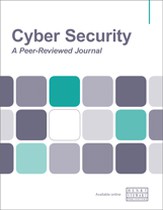Leveraging generative AI for dynamic file honeypots: Insights and implementation
Abstract
In the field of cyber security, dynamic file honeypots serve as critical tools for detecting and analysing malicious activities, especially zero-day ransomware attacks. This paper explores the integration of generative AI (GenAI) with file honeypots to enhance their effectiveness. By dynamically generating virtual decoy content, these advanced honeypots deceive attackers and protect real data. The discussion includes technical aspects of implementing file honeypots, focusing on two primary cases: dynamically inserted virtual honeypot files and honeypot files wrapped around real protected files. The paper also outlines the benefits of using GenAI for realistic content generation, continuous adaptation and enhanced threat intelligence. This approach not only bolsters security measures but also reduces storage footprints and improves overall cyber security resilience.
The full article is available to subscribers to the journal.
Author's Biography
Vladimir Strogov has more than 30 years’ experience in kernel-level development in both storage and security areas (file systems, virtualisation, data protection, reverse engineering, anti-malware solutions). He has worked on multiple Veritas and Symantec projects for nearly a decade. Additionally, he has worked at Kaspersky Lab in Core Drivers Group in roles of technical expert and team leads. Vladimir is currently the Director of Development, Kernel Team at Acronis, having joined the team in 2016. He has also authored more than 50 patents.
Sergey Ulasen PhD is Senior Director of AI Development at Constructor Technology, leading artificial intelligence/machine learning/natural language processing research and development areas. He is the developer of the ‘Eugene Goostman’ bot, the first-ever bot to pass the Turing test. Sergey is an expert in AI computer systems with emphasis on NLP speech recognition, image processing and complex system modelling and research. He has 20+ years’ experience in developing robust, scalable and configurable commercial software for scientific and business applications. Sergey developed the award-winning NLP software.
